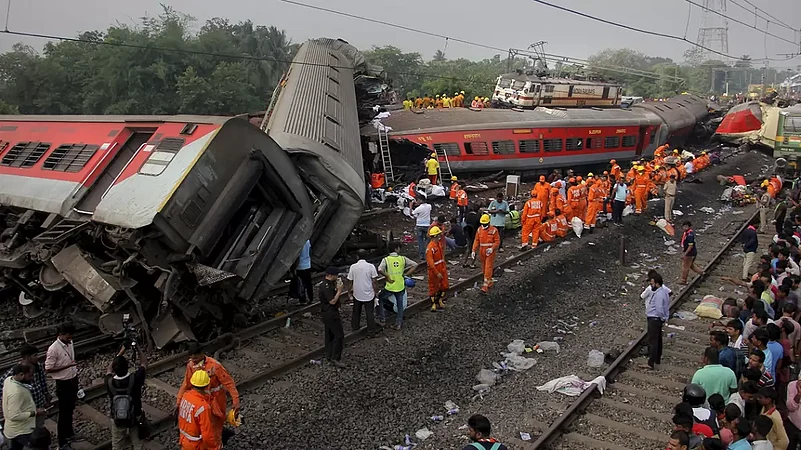The Central Bureau of Investigation (CBI) has arrested three Railways personnel in the case related to the Odisha train tragedy for destruction of evidence and culpable homicide.
The three personnel who have been arrested have been identified as Senior Section Engineer (Signal) Arun Kumar Mahanta, Section Engineer Mohammed Amir Khan, and Technician Pappu Kumar.
The three have been arrested under IPC sections 304 (culpable homicide not amounting to murder) and 201 (destruction of evidence), officials told PTI.
On June 2, the triple-train tragedy at Balasore in Odisha killed 293 and injured over 1,000. First, the Chennai-bound Coromandel Express crashed into a goods train at Bahanaga Bazar station. Then, some of its coaches derailed and hit the last two coaches of the Bengaluru-Howrah train that was running on the adjacent tacks. Some coaches of this train also derailed.
The investigation was handed over to the CBI after possibility of sabotage was raised.
The difference between murder and homicide is of the intent. A person is charged with murder when they act with the intention to kill, but a person is charged with homicide —and not murder— when their actions or lack of actions taken lead to a death but with no intention to kill.
The NDTV reported that it is the absence of intent that the three have been charged with homicide.
The NDTV reported, "Sources say the investigation has revealed that the actions of these three led to the accident, and they have been charged for culpable homicide not amounting to murder as 'they had knowledge' that their actions would result in this tragedy but not the 'intent'. If they had the intent, then they would have been charged for murder."
A report by the Commission of Railway Safety (CRS) earlier reported that multi-level lapses led to the Odisha train accident. The report also noted that previous accidents similar to the one at Balasore resulted in no corrective action.
The CRS report found "wrong signalling" to be the main reason and flagged "lapses at multiple levels" in the signalling and telecommunication (S&T) department, according to PTI. It also reported the report as saying that the triple-train accident on June 2 could have been prevented if corrective measures were taken after red flags were raised earlier.
"Notwithstanding the lapses in signalling work, remedial actions could have been taken by the S&T staff if 'repeated unusual behaviour' of switches connecting two parallel tracks were reported to them by the station manager of Bahanaga Bazar, the spot of the accident," reported PTI, citing the CRS report.
The CRS report also said that the station-specific approved circuit diagram was not provided for repair-work near the site of the accident that was a "wrong step that led to wrong wiring", reported PTI , adding that a team of field supervisors modified the wiring diagram and failed to replicate it.
This repair-work had been flagged earlier as well. Earlier, CNN-News18 reported, "The boom barrier here had malfunctioned and the railway staff was fixing the same to allow safe passage of the passenger trains. However, the suspicion is that a 'shortcut job was done in a hurry' on the location box at the level crossing with the systems here, that need up disturbing the electronic interlocking system, sources say."
Accidents similar to that of Balasore had also been reported previously. The Print reported that a senior official had previously flagged serious flaws with the system, but corrective actions were not taken. In a letter dated February 9, as per The Print, the principal chief operating manager of South Western Railway zone mentioned an incident and said it indicated "serious flaws in the system where the route of dispatch gets altered after a train starts on signals with correct appearance of route in the SMS panel. This contravenes the essence and basic principles of interlocking".


























